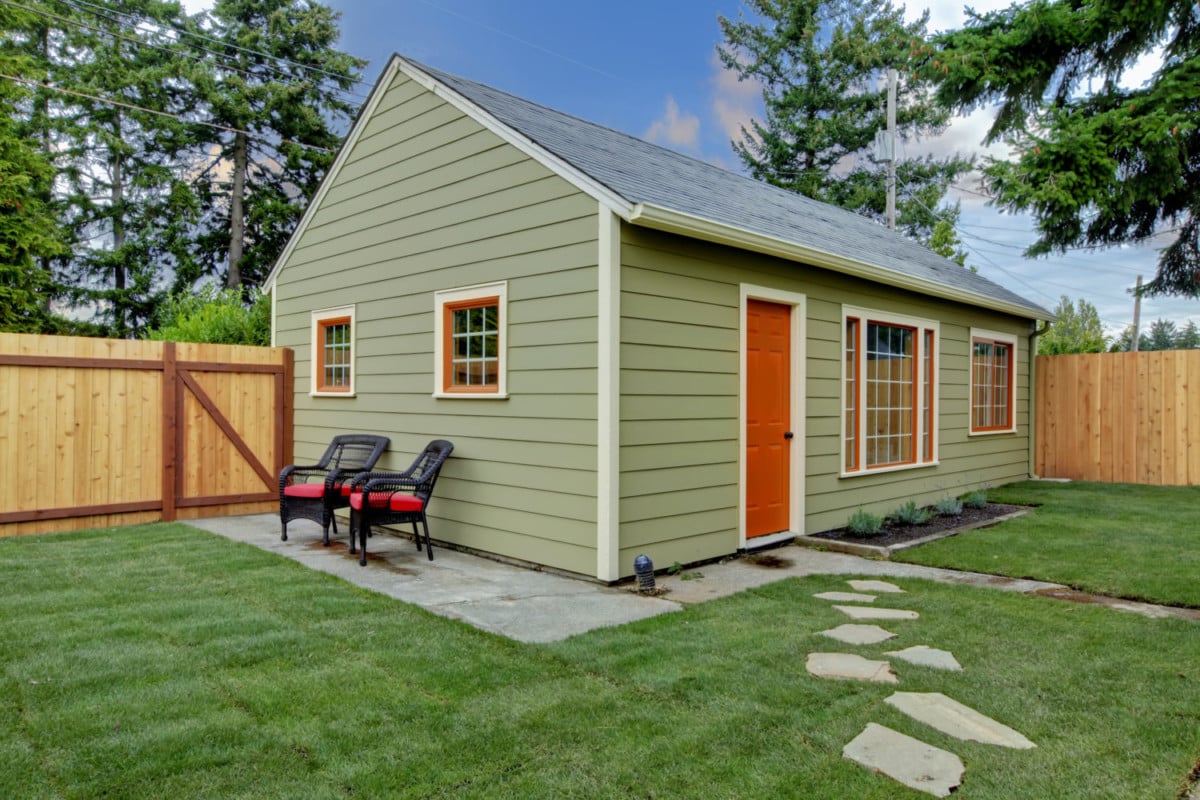For many people, a private guesthouse is a dream-come-true feature on their home wish-list. And no, we’re not talking about opening a B&B in your own home. We’re talking about a self-contained ‘mini-house’ right next to your own property. When built right, they can serve as a visitor’s house when you have guests, a private man-cave, a kid’s playroom, or be rented out to tenants. That’s sure to make lengthy visits by in-laws more enjoyable (or at least tolerable) or provide some extra cash in the pocket. Coming across a property with one of these is definitely a great find. But before you start throwing offers at the sellers, there are a few things you need to know about owning a guesthouse. As you’ll soon see, they’re not all in-law bliss and cash mountains. They have their downsides just like anything else.
1.) You’ll need to decide what your preferred tenancy option is
Having your own guesthouse sounds like a great way to make some easy money. Put up a listing, chose a tenant, and let the money roll in. But you need to first put some thought into whether you’re going to rent it to short-term or long-term tenants. Both choices have their ups and downs and you need to decide which one suits you best.
Having a short-term tenant, think of someone using Airbnb, can mean more money but it’s better to first compare those rates to what you could earn from long-term tenants. Short-term rental laws are a bit complex and will vary by state and county, so you’ll want to check what yours are. Having short term tenants will also mean having to pay regularly for cleaning and furniture. Long-term renters usually prefer to take care of this part themselves. Weigh both options carefully before deciding.
2.) The guesthouse might not be properly permitted
Since the guesthouse is already there it’s easy to assume that the owner got the proper permits for it. But don’t be too quick to assume. An unpermitted guesthouse could result in you having to tear it down once it’s been bought. It can also stop the sale from going through as insurers might see it as a risk. Ask the sellers for the permits and double-check them with a real estate attorney before going any further with the sale.
3.) Your mortgage program might affect how you can use it
The guesthouse is in good order and has all the right permits, all good, but what does your mortgage program have to say? Different mortgage programs have different rules regarding property purchases with multiple residences. Check with your mortgage lender about this as they may or may not allow you to use it for the purposes you wish. For example, FHA loans are fine with you renting out the guesthouse, but you must live in the other unit. Your lender may also take potential rental income into account when determining how much to lend you.
4.) You’ll need to know the rental market
If you’ve never played the landlord role before then you might find it’s not as easy as it looks. Just because you can rent the place out doesn’t mean you’ll have an easy time finding tenants. Check local listing websites to see what similar properties in your area are renting for. You’ll also want to check what the level of demand is. If many rentals are lying stagnant on the market for months each year then that’s not a good prospect. Don’t make the mistake of relying too much on your rental income. You’ll need to have savings to hold you up over those months when it lies empty.
5.) You’ll need to be okay with communal living
It’s good to know you can always keep an eye on your guesthouse but how do you feel about now sharing your property with someone else? This might mean having to share the driveway and backyard with someone else. It might mean having to tolerate them bringing friends over. If the thought of all this makes your skin crawl, then thankfully there are a few solutions. Putting up privacy fences or bushes are an easy way to split up the two spaces while still keeping your property looking great.
6.) You’ll need to work out utilities
Before you buy, you’ll want to check whether it’s possible for your utility companies to split the bills. This allows tenants to privately take care of their own gas, electric and trash collection bills. If it’s not possible to split the bills, then you’ll want to work out what your monthly costs will be for running both residences. If you’ll only be doing short-term rentals, then it’s probably easier to stick with one bill for both residences. You can make up the difference by charging a little more in rent. Just be sure to check how this might affect your competition on the market.

